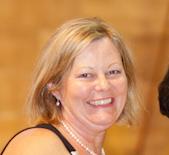
PROJECT SUMMARY:
Recent evidence supports a role for the cerebellum in the pathogenesis of dystonia. Cervical dystonia is a debilitating, painful neurological disorder that is known to reduce quality of life in affected people. Our research has found that increasing the excitability of the cerebellum with non-invasive brain stimulation in a single session restores inhibition in the primary motor cortex and improves functional writing tasks in both cervical and focal hand dystonia. We now intend to conduct a clinical trial in people with cervical dystonia. The aim of our new study is to assess effects of repeated sessions of cerebellar stimulation combined with training to further challenge cerebellar motor functions on global measures of dystonia, quality of life, range of movement, motor dexterity, motor learning and brain neurophysiology. Participants will attend for 10 sessions over 2 weeks to have theta-burst stimulation (a form of repetitive transcranial magnetic stimulation) applied over the cerebellum bilaterally or sham stimulation. Following stimulation, all participants will perform cervical range of motion and proprioception exercises using a task-orientated motor learning approach delivered by a video. Participants will be trained in implicit motor learning tasks and motor sequencing tasks at each session. In addition, they will record their subjective measurement of pain, ease of movement and static head posture using visual analogue scales. We hope the results of this clinical trial will provide data to support the development of a efficacious, cost effective alternative treatment intervention for people with cervical dystonia in Australia.



 The Brain Foundation is the largest, independent funder of brain and spinal injury research in Australia. We believe research is the pathway to recovery.
The Brain Foundation is the largest, independent funder of brain and spinal injury research in Australia. We believe research is the pathway to recovery.